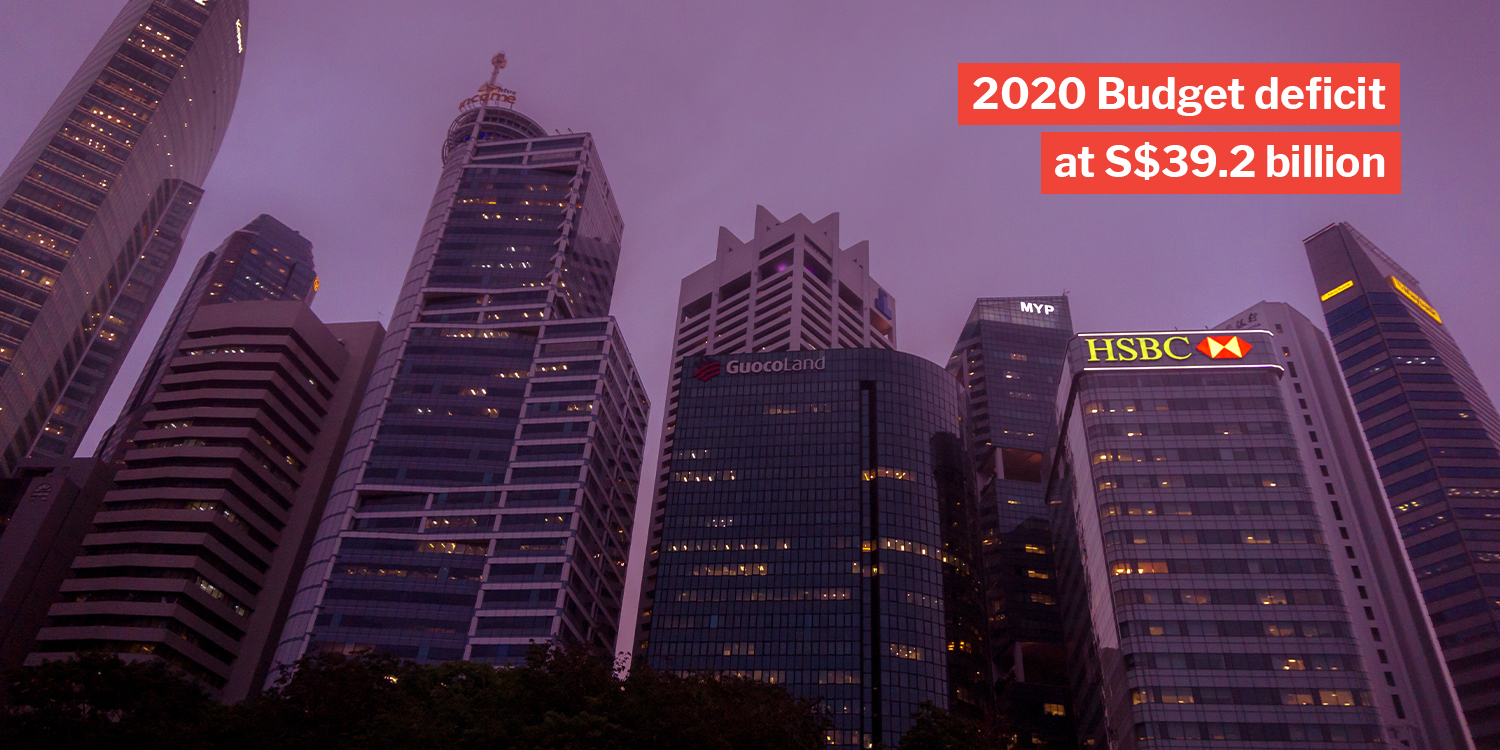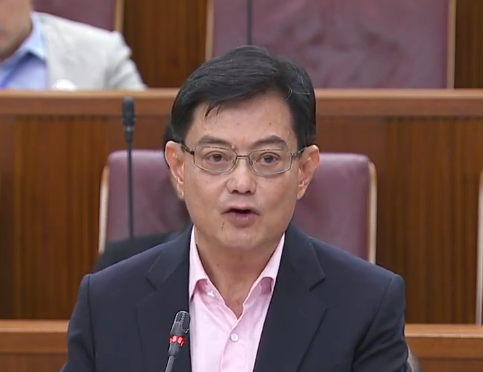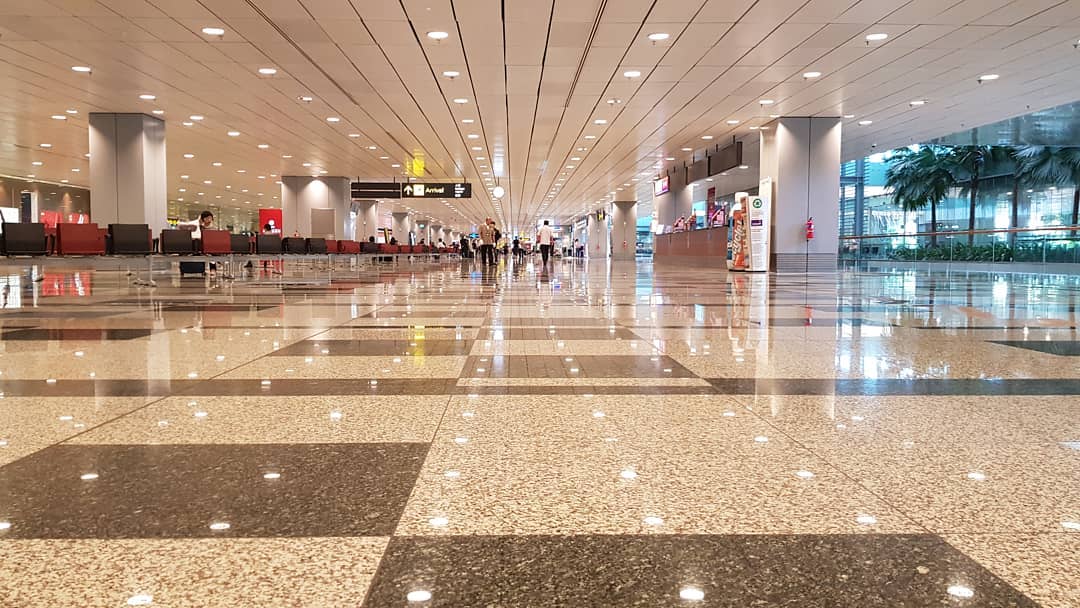Govt Is Helping Workers Affected By Covid-19 Through $55 Billion Package
On Thursday (26 Mar), Deputy Prime Minister and Finance Minister Heng Swee Keat introduced a supplementary Budget.
The new budget – known as the Resilience Budget – will cost $48 billion, which when combined with the $6.4 billion means Singapore will spend a whopping $55 billion this year.
Drawing on past reserves, Mr Heng explained the necessity of doing so to combat Covid-19 and a plunging economy.
Reserves are meant for “storms” like Covid-19
The pandemic is exactly the sort of situation that the reserves were built up for, explains Mr Heng.
This shock to our economy, he describes as a “black swan event”: an unpredictable shock that impacts global affairs negatively.
Thankfully, we’ve not excessively spent our reserves previously, and have been prudent through the yearly Budgets.
Now is the time to use our reserves to help out those worst-hit by current events.
Employers will get help to keep workers employed
$15.1 billion has been set aside to support more than 1.9 million Singaporean employees over 3 periods — in May, July, and October.
The Enhanced Jobs Support Scheme will assist employers in retainer workers so they don’t get retrenched.
From $3,600 before, the monthly qualifying wage ceiling will now be $4,600, and will last 3 quarters instead of just 1.
The Government Co-funding Ratio of Wages will also increase drastically:
- 25% for local workers
- 50% for food services sector
- 75% for aviation and tourism sector
Previously, it was 8% across all industries, and these 3 industries were hit hardest by Covid-19.
The Point-to-Point Support package will help both taxi and private-hire drivers to receive a Special Relief Fund of $300 per vehicle a month until end-September.
Private bus owners will have a one-year road tax rebate, as well as a 6-month parking charge waiver at all government-managed parking places.
Self-employed workers will receive $1,000 over 9 months
Workers who are self-employed and have no stable income will receive $1,000 a month for 9 months.
Self-Employed Workers To Get $1,000/Month For 9 Months After Covid-19 Imperils Their Rice Bowls
$1.2 billion is set aside for this purpose, and about 133,000 Singaporeans will benefit.
Cash payouts to all adult Singaporeans to be tripled
Singaporeans aged 21 and above will receive S$300-S$900 instead of $100-$300, as was announced in the previous Budget.
Adult S’poreans To Get $300-$900 Each Under Resilience Budget, That’s Triple The Previous Amount
Meanwhile, parents will get S$300 each, if they have a Singaporean child aged 20 years and below this year.
The PAssion one-off topup of $100 will be given in cash instead to prevent queues amid Covid-19.
Job-seekers to get work opportunities
There will be up to 8,000 traineeships for 2020 across large and small enterprises alike, especially for those graduating from polytechnics, ITEs and universities.
Under the SGUnited Jobs Initiative, there will also be about 10,000 created jobs over the next year.
Meanwhile, the unemployed will receive more flexibility for applications under ComCare.
There will be a Temporary Relief Fund for families who require immediate financial help.
Lastly, there will be a Covid-19 Support Grant for those who lose their jobs as a result of the pandemic.
S’pore Workers Who Lose Jobs Due To Covid-19 To Get $800/Month For 3 Months: DPM Heng
Lower- and middle-income Singaporeans will receive $800 monthly for 3 months if they’re affected.
Waiver for government fees, loans
Charges for government services will freeze for a year, meaning we do not have to pay for them.
This will last from 1 Apr 2020 – 31 Mar 2021.
Students also will not have to repay their loans and interest charges for a year — from 1 Jun to 31 May 2021.
This will apply to all graduates who took a government loan for polytechnic and university studies.
HDB mortgage arrears’ late payments will also be waived for 3 months.
Upskilling arts sector & digitalising
The arts sector will receive more help, which will cost the government $55 million.
With additional support given to major companies as well as leading arts groups, they can safeguard jobs and allow operations to continue.
The National Arts Council’s Capability Development Scheme for the Arts will also be enhanced.
Digitalisation is also a priority and the government will establish more digital arts platforms, reaching out to new audiences.
More details will be shared by the Ministry of Culture, Community and Youth later.
Economic resilience on essentials, industries, training support
The government will build up their stockpile of health supplies to ensure Singapore remains well-stocked.
Food supplies are already being handled with a multi-pronged approach to ensure we won’t lack in groceries.
Food resilience is a priority, and Singapore wants to product 30% of nutritional needs by 2030, instead of below 10% currently.
Meanwhile, firms will receive support as well.
The government will match $1 to every $2 which is raised by Trade Associations and Chambers (TACs), or other business groups for new initiatives to help companies through this time.
Previously, the number was $1 to every $4.
They can use these to restructure, digitalise, and transform:
- SMEs Go Digital Programme,
- Productivity Solutions Grant (PSG),
- Enterprise Development Grant (EOG),
Maximum support levels for PSG and EOG will be raised to 80% and 90% respectively. These enhancements will last until Dec.
More skill support enhancements for worker upgrades
There will be enhanced skills support for upgrading of workers as well.
The enhanced training support for both arts and culture, as well as land transport sectors will be extended starting 1 Apr.
The 90% absentee payroll rates to all employers will be extended from 1 May as well.
The $500 SkillsFuture Credit top-up for courses can be used beginning from 1 Apr, after government worked with institutes of higher learning and training centres.
Resilience Budget causes deficit of S$39.2 billion
Mr Heng stated that the deficit for this year for Budget is at $39.2 billion.
However, this is manageable and Singapore can support it thanks to prudent spending in previous years.
In fact, this year’s Budget spending was considered prudent as well until Covid-19 hit.
If need be, there’ll be further tapping into the reserves, which has to be approved by the President.
Additionally, all political office holders will take a total pay cut of 3 months, from 1 before.
S’pore Ministers To Take 3-Month Pay Cut To Show Solidarity With Citizens: DPM Heng
This includes the President, Speaker and Deputy Speakers. Singapore is SGUnited.
Featured image adapted from Kit Suman on Unsplash.

Drop us your email so you won't miss the latest news.










